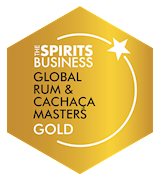Best Javanese Beverage Types
Thick and rich kopi tubruk is the most popular coffee in Indonesia, especially in Java. It involves simple preparation in which boiling or hot water is combined with fine or medium ground coffee. The combination is mixed until it is well incorporated, and it is then left to sit for a couple of minutes until the coffee grounds settle at the bottom of the cup.
Although sugar is optional, most people choose to sweeten the coffee by mixing sugar with coffee grounds, before the water is added. This method of preparation is believed to have been introduced by the traders from the Middle East since both the method and the coffee are quite similar to Turkish (Greek) coffee.
Wedang jahe is a refreshing Indonesian beverage believed to have soothing and calming properties. The drink is a simple combination of crushed or diced ginger, palm sugar, and water. The ingredients are slowly simmered until the sugar melts, and the water is thoroughly infused.
Optionally palm sugar can be replaced with cane sugar or honey, and the drink can be flavored with pandan leaves or spices. Wedang jahe is usually associated with Java, and it can be enjoyed as a warm or chilled drink.
Bajigur is a hot drink, native to the Sundanese people of West Java, Indonesia. Full of sweet and spicy flavors of ginger, aren sugar, and coconut milk, this beverage is most commonly paired with traditional snacks such as steamed bananas, boiled peanuts or boiled sweet potato.
Bajigur is sold through mobile vendor carts equipped with stoves that keep the drink hot and is considered best suited for drinking during cold nights, rainy days or when spending time in cool highlands.
MAIN INGREDIENTS
Bandrek is a traditional Indonesian spiced drink from West Java, particularly popular among the Sundanese people, known for its warming, soothing qualities and bold, aromatic flavor. It is typically consumed during the rainy season or in cold weather, especially in highland areas, to warm the body and boost circulation.
The drink is made from a base of palm sugar and fresh ginger, giving it a rich, sweet-spicy taste. Other ingredients often include cinnamon, cloves, lemongrass, pandan leaves, and black pepper, with some regional versions adding coconut milk for a creamy texture or young coconut flesh for extra richness.
Native to Central Java, sekoteng is a ginger-based hot drink made with simple ginger syrup and condensed milk. It is topped with sagoo pearls, palm fruit, coconut, diced bread, and peanuts. The drink is sweet in flavor with different textures created by the various toppings.
Sekoteng is most commonly sold in the evening by cart vendors; it is said that drinking it in the evening will keep the body warm and help with sleep.
Kopi joss is a specialty coffee that originated in Yogyakarta. What makes this coffee unique is the addition of burning charcoal that is added directly in a cup of brewed coffee. The addition of charcoal is believed to have health benefits, and many also find that burning charcoal neutralizes acidity and provides a subtle caramel flavor to the brew.
The drink allegedly first appeared in the 1960s as an invention of a local street vendor. Nowadays, several coffee vendors, located mostly in tourist areas of Yogyakarta, prepare and sell this specialty. Interestingly, the name joss is believed to stem from the onomatopoeic sound that occurs when the burning charcoal is dropped in the glass.
Batavia arrack hails from Java, and it is produced from sugarcane molasses, red rice cakes, and occasionally small amounts of toddy—fermented palm juice. Often compared to rum, the drink is quite potent with herbaceous, nutty, smoky, and subtly spicy flavors and aromas.
The exact time when Batavia arrack originated is not known, but it has long been in existence before the Dutch settled East India Company on Java—which makes arrack one of the oldest distillates in the world, and a predecessor to all new world spirits such as gin, whisky, or brandy.
Best Javanese Beverage Producers
Kopi Luwak is a renowned Indonesian coffee company specializing in the production of premium civet coffee, commonly known as Kopi Luwak. Established in 1969, the company has dedicated decades to perfecting the art of coffee cultivation and processing.
Their signature product is derived from coffee cherries consumed and naturally fermented by wild civets, resulting in beans that are meticulously collected, cleaned, roasted, and ground to produce a rich, full-bodied coffee with unique flavor notes of caramel and chocolate.
BEST Kopi Luwak Coffee Coffees
AWARDS

Melbourne International Beer Competition - Gold
2018

Untappd - 2.9
BEST BINTANG PILSNER BEER Beers
TasteAtlas food rankings are based on the ratings of the TasteAtlas audience, with a series of mechanisms that recognize real users and that ignore bot, nationalist or local patriotic ratings, and give additional value to the ratings of users that the system recognizes as knowledgeable. TasteAtlas Rankings should not be seen as the final global conclusion about food. Their purpose is to promote excellent local foods, instill pride in traditional dishes, and arouse curiosity about dishes you haven’t tried.



